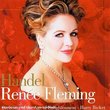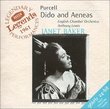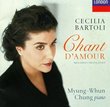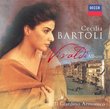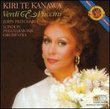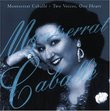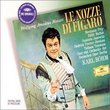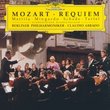A Riveting Performance
John Cragg | Delta(greater Vancouver), B.C Canada | 06/15/2000
(5 out of 5 stars)
"Don Carlo is a problematic opera -- Verdi and French grand opera really didn't get on. The problem is too much material so cuts are needed and unfortunately, the best music, the most spectacular stage presentations and the coherent development of plot and character do not correspond, and muchthe latter is usually sacrificed. (This apparently started with the initial production which turned out to be unbelievably lengthy.)However, Don Carlo does contain some really magnificent music. A satisfying performance requires five (and preferably six) really great singers with very strong voices, an enthusiastic orchestra and a fine chorus -- preferably one that is smoother than the principals. This live recording has all these requirements. The title role was still ideal for Corelli towards the end of his career, and his singing is breath taking and one cannot ask for a bigger tenor voice. Shirley Varrett also may have been beyond her prime, but here she provides electric singing that lifts one from one's chair. Some of her low notes are chesty -- but this adds to the highly sinister portrait that Varrett paints of Eboli. Eberhard Waechter is magnificent as Rodrigo, his typically smooth and elegant singing poviding a nice contrast to the other two. Less memorable, though still supurb in some passages, is the Elisabeth of Gundula Janowitz. Her portrayal, marred by a rather dark timbre not too sitable for this role, seems almost routine in comparison with the others'. Nicolai Ghiaurov gives a suitably weighty Philip II, though not a performance that adds much to his character, and Talvela's grand inquisitor rounds out ably a satisfying cast. The Vienna chorus does a splendid job, and Stein just manages to control a Vienna Philharmonic that has abandoned gemutlichtheit in favour of red blooded playing. The sound is remarkably good for a live recording. The Viennese audience is enthusiastic but well disciplined and in fairly good health. Their applause is not cut short -- the recording proceeds through curtain calls -- sometimes several of them -- where a typical radio production would fade to a voice over. Of course, one can cut this short with the remote zapper, a necessary step for repeated listening. The booklet is farcically inadequate, wih no libretto and no serious indication of which versions are used and what is cut. But for the price, what can one expect? (Incidentally, my search for this recording turned up a version from Myto which appeared to be the same thing with different track indices and the addition of some other (non Verdi) material at a very much higher price. I have no idea what its booklet etc might be like.)"
Good singing, poor version
Jon M. De Benedictis | 04/24/2002
(3 out of 5 stars)
"This performance is more like 3.5 stars, sometimes four. After listening to other complete five and four act version the cuts in this four act version were somewhat disconcerting. Both cuts in the second and fourth act Carlo-Elisabetta duets ruin the flow and interupt the drama for anyone who was heard the full versions. The finale also seems empty without the appearance of Charles V and Elisabetta's final scream. I also was not as impressed by the Philip-Inquisitor duet as other reviewers. In his attempt to be menacing Tavela resorts to screaming and towards the end his ranting leaves him breathless and you can hearing him panting during the lulls in the music. As this is an older, live recording the sound is spotty at times, but is decent overall. That all being said the rest of the performances are good and the energy of the live performance adds to the excitement. At this price this recording is worth buying for a Don Carlo fan."
Sans hésiter
Constantin Declercq | 09/12/2007
(5 out of 5 stars)
"Corelli a chanté «Don Carlo» sur scène mais n'a pas enregistré d'intégrale officielle. Cet enregistrement non-officiel d'une représentation viennoise de 1970 est donc un des témoignages accessibles que nous avons de lui. Et il y est comme on l'espère, superbe, solaire, inattendu même. Rodrigue est chanté par Eberhard Waechter qui n'est plus au meilleur de sa forme et qui est peut-être un peu trop germanique, surtout dans « Dio, che nell'alma infodere» ; c'est pourtant dans ce dernier air qu'il est le meilleur. Ghiaurov (Philippe II) et Talvela (L'Inquisiteur) sont parfaits. Verrett est une bonne Eboli si l'on excepte quelques intonations singulièrement poissardes. Cette version fait trois heures ; il s'agit de celle en quatre actes sans l'acte de Fontainebleau ni l'apparition finale de Charles Quint. Le cd ne donne pas le texte de l'opéra.
Il existe une version officielle de cette représentation dans la série «Orfeo d'or». Les autres versions non-offcielles avec Corelli sont des représentations à Philadelphie (1966) et au Met (1964 et 1972). Dans la version de 1964, Corelli est bien sûr excellent ; il est de plus très bien entouré et le chef est parfait (Adler). La version est celle en quatre actes de 2 heures 40. Cependant, le disque ne possède aucun livret, il est enregistré un demi-ton trop bas et en plus je crois qu'il ne se trouve plus guère (GOP puis Living Stage l'ont édité)."
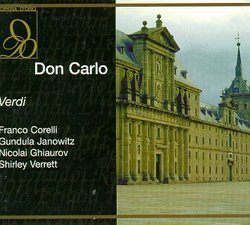
![header=[] body=[This CD is available to be requested as disc only.]](/images/attributes/disc.png?v=15401716)
![header=[] body=[This CD is available to be requested with the disc and back insert.]](/images/attributes/disc_back.png?v=15401716)
![header=[] body=[This CD is available to be requested with the disc and front insert.]](/images/attributes/disc_front.png?v=15401716)
![header=[] body=[This CD is available to be requested with the disc, front and back inserts.]](/images/attributes/disc_front_back.png?v=15401716)

 Track Listings (10) - Disc #1
Track Listings (10) - Disc #1